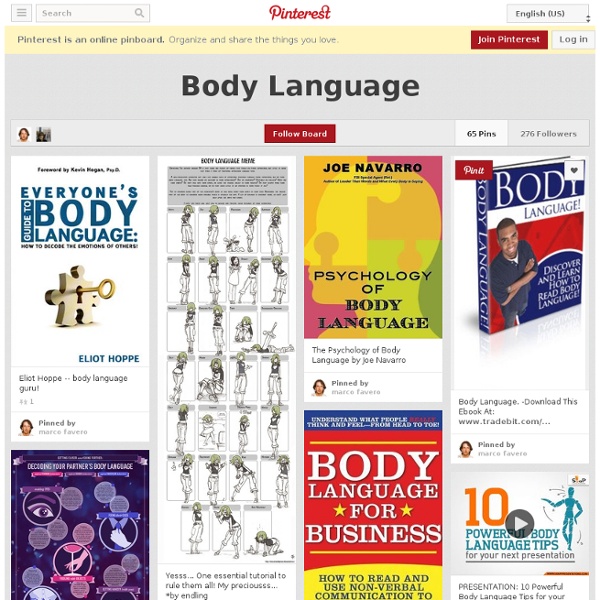



How to Read Body Language More Effectively Heal Yourself At Home Body Language Signals: Eye Directions, Pupils Warning! Reading body language is like listening to someone. Listed here are the possible meanings of many different body language signs. To avoid getting it wrong, please start with the short section “How Can You Read What People Think?” at the bottom of this page. The Eyes (Part II) - Squint during a conversation –> showing interest - Looking away –> possibly shy –> curious about the surroundings (some people naturally observe their environment more than others) –> showing interest in your other movements. Otherwise, it may be a sign that this person is attracted to you… Basically, looking at other parts of your body is part of the unconscious assessment people make about how suitable you are as a mate… Whether you like it or not, we all do this. How To Read Eye Directions Without going too deep into neuroscience, let’s look at how a person’s eye directions can tell you what they are actually thinking. You have probably heard that there are two main parts to the brain: How can you use this? Why?
Realm Dynamics - Matrix Version 0.2 :: June 30th 2005 :: montalk@montalk.net :: Download PDF [The principles of Realm Dynamics were inspired by the Cassiopaeans, expanded by the Nexus Seven, refined through numerous discussions with friends, and confirmed by experience.] Introduction An ancient hermetic axiom states that everything is mind, everything vibrates. This is the study of realm dynamics, how vibrations influence experience, and how experience influences vibration. Vibration When we speak of vibration, we are really talking about waves with amplitude, frequency, and phase. Soul vibrations are no less tangible than sound waves, though their nature and medium of propagation are more exotic. Realm dynamics is essentially about quantum physics, or at least how quantum principles allow consciousness to interface with physical reality. Because quantum processes determine not only what we perceive but also through what we perceive, we are largely unaware of their influence. The Fractal Hologram Realms Energy
The Wrong Body Language You're automatically signed up for the Inc. Wire, so you never miss a single day's most important news, tips, or ideas. Roll over the name of the other Inc. newsletters to see how you can get great Inc. articles on the topics that matter most to you. The news-from all over the web-entrepreneurs need to know now. Brand, market, and sell your product or service, and how to use the latest apps, social media, and mobile devices to do it. News, trends, and tactics to help you launch your business idea today. Keep up with (and make sense of) business technology trends and tools available today and tomorrow. Grow fast, beat the competition, and take off with actionable advice and personal stories from serial entrepreneurs, experts, and others who have done it before. We vet new gadgets and offerings to make it easier for you to run your business better. How to raise capital, set budgets, price products, account properly, and map out an exit strategy.
Welcome to the Frontpage 18 Ways to Improve Your Body Language There is no specific advice on how to use your body language. What you do might be interpreted in several ways, depending on the setting and who you are talking to. You’ll probably want to use your body language differently when talking to your boss compared to when you talk to a girl/guy you’re interested in. These are some common interpretations of body language and often more effective ways to communicate with your body. First, to change your body language you must be aware of your body language. You might want to practice in front of a mirror. Another tip is to close your eyes and visualize how you would stand and sit to feel confident, open and relaxed or whatever you want to communicate. You might also want observe friends, role models, movie stars or other people you think has good body language. Some of these tips might seem like you are faking something. In the beginning easy it’s to exaggerate your body language. 1. 2. 3. 4. 5. 6. 7. 8. 9. 10. 11. 12. 13. 14. 15. 16. 17. 18.
Dreamhill Research In the early 1980's I was honored to have as a dear friend and work with the late Dr. Marcel Vogel who founded Psychic Research Inc. Although my background is in traditionally taught electronics and communications, I have always felt that the laws that govern these sciences have a profound basis that goes far beyond that which scientists can presently measure. An experience in my life that triggered my interest in sacred geometry is what lead me into seeking out the one person on the planet that was scientifically linking consciousness with geometrical forms as exemplified in crystals, Dr. Few basic fundamentals about the energies of Mind from the Research Marcel had a genius of an inquisitive mind, that once he discovered for himself that the energies of mind could effect matter, he then went into serious scientific research. That it can be responded to by instrumentation connected to a plant or even conductive rubber. Marcel Joseph Vogel According to Marcel: The Gift
The Code to the Matrix - Final Copy